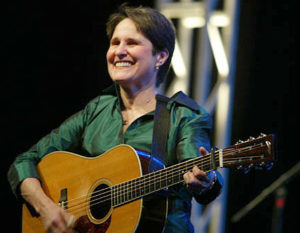This column by Cantor Lorna Wallach originally appeared in the January/February 2021 edition of The Bulletin and coincides with the 10th Yahrzeit of singer/songwriter Debbie Friedman, z”l.
Of the many challenges and stresses brought about by this world-wide pandemic, I have come to realize that with the virus being a primary and constant topic, both in the media and even in my personal conversations, for these past nine–plus months, on a daily basis, I have thought about illness and how many people are dying from the virus. I have to believe I’m not the only one experiencing this sadness and heaviness. I try as best as I can to balance this out with feeling gratitude and with finding silver linings, but another thing I have found that has brought me comfort has been saying the Mi Sheberach prayer for healing together with other members of our CBI community. We pray for those stricken with the coronavirus and also for all those who are in need of healing. We each of course could (and I’m sure do) say our own prayers for those we know who are sick, but I sense so much support and caring as we each listen to the names of the individuals that each of us recites during the Mi Sheberach prayer. There’s a power in prayer, but also in praying with a community. We each contribute to the power of holding up each other’s spirit to help us bear whatever we have to bear.
Judaism recognizes that the human body is a very complicated organism, and that its continued health requires that all the many parts of the body work together properly. Thus, in one of the first blessings of the day that is traditionally said upon awakening, we bless G-d for the intricate design of our bodies. Prayers for healing, then, come when one of those body parts no longer works correctly.
Jewish liturgy provides opportunities for prayers of healing, although none of them are elaborate. The earliest prayer for healing is in the Torah, Numbers 12:13, when Moshe cries out the five word plea, “El Na, Refa Na La,” (G-d, Please heal her), when his sister Miriam is stricken with leprosy. During the weekday Amidah, the eighth blessing is a general prayer for health, followed by time for personal prayer for one who is ill. Although it is not customary to have petitionary prayers on Shabbat, asking God’s blessings for those facing illness and the healers who help them, has come to be a part of Shabbat services. Many congregations, including ours, sing the beautiful “Mi Sheberach” song by Debbie Friedman and Rabbi Drorah Setel when we pray for healing. CLICK HERE for video of Debbie Friedman singing Mi Sheberach.
To me, one of the most significant concepts in the Mi Sheberach prayer is that we not only pray for a healing of the body (Refu’at Haguf) but also (and first!) for the healing of the soul (Refu’at Hanefesh). A comment on this in Siddur Lev Shalem (page 173) says that “Healing may be different than ‘cure.’ Healing is a process that concerns not only the physical aspect of our reality, but our mental, emotional and spiritual state as well. We pray, in part, for inner peace, calm and a cessation of torment and suffering.
As bystanders and witnesses to suffering, when we feel powerless and afraid, let us come together, to find hope and inspiration, in a prayer for healing. Bless those in need of healing with Refu’ah Shleima (complete healing) and give strength to those who treat and care for them.
To contact Cantor Wallach, email her at cbicantor@cbi-nj.org.

